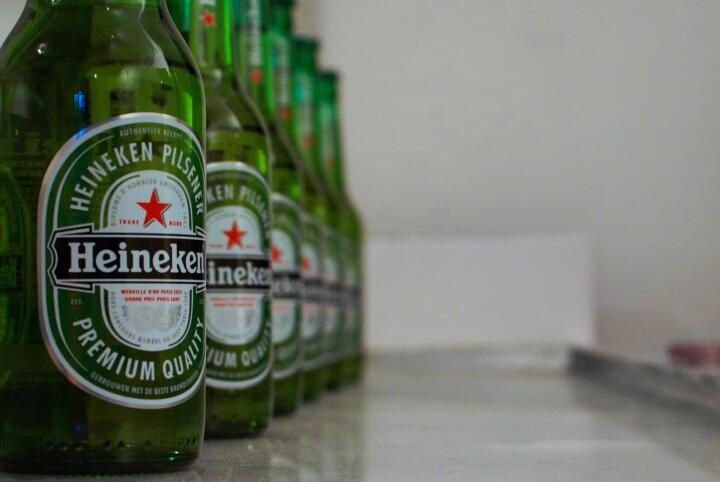Heineken, the global beer maker, has reported a decline in its beer volumes in Nigeria and South Africa in its third-quarter report, alongside its projections for the year 2024. The company disclosed that it managed to increase its revenue in the third quarter, thanks to higher prices, even though demand slowed down in several markets due to rising inflation.
Dolf van den Brink, the CEO of Heineken, explained in a statement that the volume decline in Nigeria and South Africa had a notable impact on the company’s overall performance in the Africa, Middle East, and Europe regions. He stated, “We returned to volume growth in the Americas, with strong performances in Brazil and Mexico. Asia Pacific showed improvement sequentially, despite ongoing challenges in Vietnam. However, the Africa, Middle East & Eastern Europe region was adversely affected by volume declines in Nigeria and South Africa.”
Heineken’s third-quarter report underlined that inflation and currency devaluation were key factors contributing to its net revenue growth, which was in the low single digits. Interestingly, the non-alcoholic beverage, Maltina, continued to outperform in the market during the third quarter.

“In Nigeria, net revenue (beia) grew organically by a low-single-digit, driven by pricing to partially mitigate significant inflation and currency devaluation. Total volume declined significantly, falling by a percentage in the twenties, trailing behind the market,” the report revealed. “Consumers’ purchasing power continued to be under severe pressure due to inflation and the impact of structural economic reforms, affecting our premium portfolio disproportionately. In this challenging context, the leading non-alcoholic malt proposition, Maltina, continued to significantly outperform the market and broadly held volume.”
When considering global demand trends, Heineken reported a 4.2% decrease in beer volumes during the July-September quarter on a like-for-like basis. The decline in volumes was observed in all regions, except the Americas. Despite the drop in volumes, the company managed to achieve a 4.5% increase in net revenue before one-time items. These results were in line with market expectations, as analysts participating in a company-compiled survey had anticipated a 4.3% drop in volumes and a 4.8% increase in revenue.
Heineken also reaffirmed its previous projection for the year 2023, maintaining its expectation of operating profit growth ranging from zero to a mid-single-digit percentage increase.
Regarding revenue for the quarter, Heineken reported a 4.5% growth, reaching €9.6 billion, despite the global volume decline. The report highlighted that currency devaluation in African countries had a significant impact on revenues, resulting in a €397 million loss. However, this was partially offset by a stronger Mexican Peso. The statement clarified, “Currency translation impacted revenue by €397 million (Year-to-Date: €488 million), mainly from the devaluation of currencies in Africa and partially offset by a stronger Mexican Peso. Consolidation effects contributed €276 million (Year-to-Date: €507 million), mainly from the integration of Distell and Namibian Breweries.”
In summary, Heineken’s third-quarter report shows a complex mix of challenges and opportunities in various markets. While it faced volume declines in regions like Nigeria and South Africa due to economic factors, it managed to increase revenue through strategic pricing. The company’s focus on non-alcoholic beverages like Maltina has proven successful in navigating these challenges, and it remains cautiously optimistic about its future performance and growth prospects for 2023.
Support InfoStride News' Credible Journalism: Only credible journalism can guarantee a fair, accountable and transparent society, including democracy and government. It involves a lot of efforts and money. We need your support. Click here to Donate
